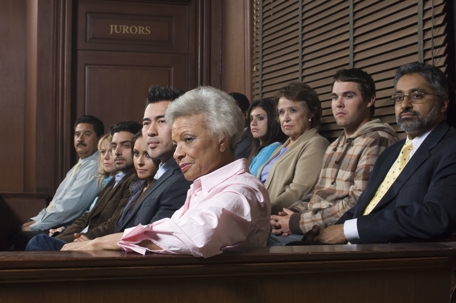In most jurisdictions in the United States, a Judge decides matters in a divorce or other family law case. However, Texas is the only state that allows juries to decide issues of fact that arise in family law disputes. This article examines the role a jury plays during certain family law proceedings and the types of issues they are permitted to decide.
Legal Authority for Jury Trials in Divorce Cases
The right to a jury trial in civil cases is guaranteed under the Texas constitution. Furthermore, Texas Family Code § 6.703 provides that “either party may demand a jury trial unless the action is a suit to annul an underage marriage under Section 6.102.”
In general, a jury trial is appropriate when there is a genuine dispute regarding material facts.
When it comes to property division issues, there are three major questions that need to be answered:
- Does the property qualify as community property or separate property?
- If community, what is the value of community property?
- What proportions constitute a “just and right” division of assets?
A jury can resolve issues concerning the character and value of property in a divorce case. However, only the court has the authority to determine the “just and right” division of property. To determine the character of property, courts look at how the property was acquired and whether the property was acquired before the parties were married or during marriage. Thus, for example, if there was an issue about whether property was acquired using funds that could be traced to a spouse’s separate property, a jury may decide the issue.
Texas law also allows juries to determine issues of fact concerning spousal maintenance, including a party’s eligibility for maintenance, and amount of a maintenance award, and the duration of a maintenance obligation. For example, a jury can decide whether a spouse requesting spousal maintenance meets the qualifications to be awarded spousal maintenance.
Jury verdicts for family law cases need not be unanimous. Only 10 jurors of a 12 member jury or five people out of a six panel jury need to agree for a verdict to be valid. However, in the case of exemplary damages, a jury verdict must be unanimous.
Jury Trials in Custody Cases
The right to a jury trial also applies to suits affecting the parent-child relationship (SAPCR).
A jury may determine the following issues in custody cases:
- Conservatorship- whether parties will be Joint Managing or if factors are proven to have one party awarded Sole Managing Conservatorship
- Whether anyone is appointed as a possessory conservator
- If parties are appointed Joint Managing Conservators, the jury may designate which joint managing conservator will provide the child’s primary residence
- Imposition of geographic restrictions- whether a child’s primary residence will be restricted to one area or not
However, a jury may not determine specific custody terms and conditions, the rights and duties of a conservator, and child support issues. The right to a jury is also not available in suits for adoption or determining parentage.
Jury Trials Prohibited in Most Enforcement Proceedings
Under Section 9.005 of the Texas Family Code, jury trials are prohibited “to enforce a decree of divorce or annulment.” One of the most significant methods of enforcing divorce orders is through contempt of court proceedings. When someone violates the terms of a divorce order, Texas courts have the authority to hold the violator in contempt of court, which is punishable by either fine or detaining someone in jail.
Punishment for criminal contempt is punishable by a fine not exceeding $500, and imprisonment in a county jail for not more than six months. Texas courts have held that the right to a jury trial in cases involving constructive contempt is not guaranteed by the constitution unless the term of confinement could exceed six months.
However, if the contemnor is subject to multiple offenses that could lead to consecutive sentences which would run longer than six months, the charges would be considered serious crimes of criminal contempt that entitle the contemnor to a jury trial. A person can be held in contempt for different court orders and have their sentence aggregated which could lead to their situation being labelled a serious offense and therefore triggering the right to jury.
Coker, Robb & Cannon Proudly Protects Your Rights
The decision whether to request a jury trial for a family law proceeding is a strategic one that can impact the outcome of the litigation. To determine whether your case can benefit from a jury trial, you should consult an experienced attorney from Coker, Robb & Cannon Family Lawyers.
To schedule a consultation with one of our dedicated lawyers, call us (940) 293-2313 or contact our office onlinetoday.

